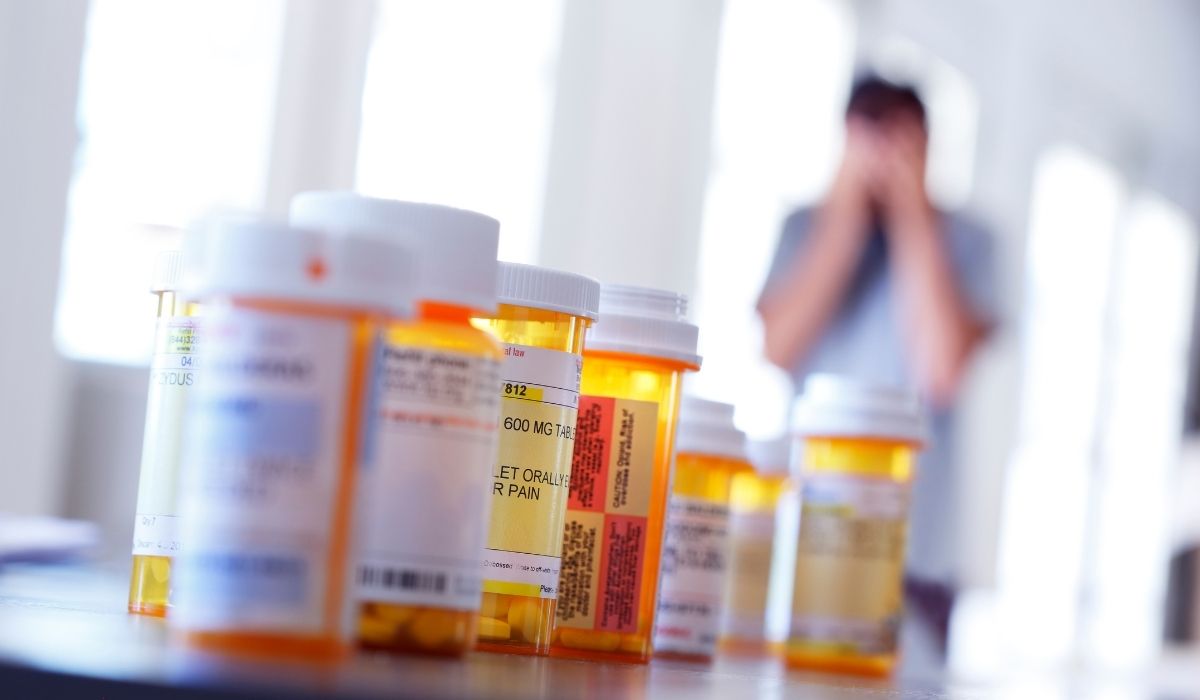How Long Does It Take to Recover from Heroin Addiction?
Recovering from heroin addiction is different for everyone. Some people feel better in weeks, while others need many months or years. The journey depends on your health, how long you used the drug, and the type of treatment you receive.
Let’s break it down step-by-step in easy-to-understand terms so you know what to expect.

What Is Heroin Addiction?
Heroin is a strong drug made from the poppy plant. It’s part of a group called opioids, like morphine, oxycodone, and fentanyl. These drugs affect your brain and body, especially how you feel pain and pleasure.
When someone uses heroin often, their brain and body become dependent. This means they feel sick without it. That’s called physical dependence or addiction. Over time, this addiction can take over their whole life.
How Heroin Affects the Brain and Body
Heroin connects to something called opioid receptors in your brain. These receptors help control pain, mood, and pleasure. When heroin enters the blood and reaches the brain, it causes a strong feeling called euphoria—a rush of happiness. But soon, that good feeling fades, and the brain craves more.
Using heroin often changes how your central nervous system and nervous system work. It can mess up:
-
Mood
-
Memory
-
Heart rate
-
Breathing
-
Sleep
-
Stress levels
Heroin can also lead to other problems like depression, kidney disease, liver issues, and hepatitis from needle sharing.
What Is Heroin Withdrawal?
When a person stops using heroin, their body reacts. This is called drug withdrawal. It can be very painful but is a normal part of recovery.
Common Withdrawal Symptoms:
-
Vomiting and nausea
-
Muscle and bone pain
-
Insomnia (trouble sleeping)
-
Irritability and mood swings
-
Diarrhea
-
Runny nose
-
Fast heart rate
-
Shaky blood pressure
-
Sweating and chills
-
Cravings for the drug
Withdrawal can begin within 6 to 12 hours after the last dose and last up to 10 days. It feels like a very bad flu.

How Long Does It Take to Detox From Heroin?
Medical detox is often the first step. In a treatment center, doctors and nurses help you manage withdrawal safely.
Detox Timeline:
-
Day 1–2: Cravings, anxiety, muscle aches start.
-
Day 3–5: Peak withdrawal symptoms. This is the hardest part.
-
Day 6–10: Symptoms ease, but mood changes like anger or sadness may stick around.
Medications like methadone, buprenorphine, or naltrexone may be used to ease withdrawal. These are called MAT (Medication-Assisted Treatment). They work with your brain’s opioid receptors but don’t make you high.
What Happens After Detox?
Getting clean is just the start. After detox, people often go to rehab or a treatment center to learn new ways to live without drugs.
Next Steps in Recovery:
-
Therapy to learn coping skills and change harmful behavior
-
Group support like Narcotics Anonymous or peer support
-
Family therapy to rebuild trust
-
Medical checkups with a physician or primary care doctor
-
Ongoing medications to help cravings
-
Learning stress management and healthy habits
How Long Does Recovery Take?
There is no exact time for healing. Some people feel stronger in 3 months. Others take a year or more. Experts say the first year is the most important. That’s when the risk of relapse is highest.
Recovery is a journey, not a race. You’re working to heal your brain, body, and heart.
Recovery Timeline Overview:
-
0–2 Weeks: Detox and withdrawal
-
1–3 Months: Rehab and learning new behaviors
-
4–12 Months: Building sobriety, managing triggers, avoiding relapse
-
1+ Year: Long-term healing, growing stronger
Many stay in treatment or support groups for several years. That’s normal.
Why Do People Relapse?
Relapse is when someone uses heroin again after stopping. It’s not failure—it just means more help is needed.
Triggers That Can Lead to Relapse:
-
Stress or sadness
-
Hanging out with old drug-using friends
-
Seeing injection tools like syringes
-
Certain places, songs, or smells
-
Feeling lonely or hopeless
-
Not following a plan or skipping therapy
That’s why support and structure are so important.
What Helps Recovery Last?
Long-lasting recovery needs more than just stopping the drug. It’s about improving your whole quality of life.
Helpful Tools:
-
Medications like buprenorphine or methadone
-
Support from treatment centers or programs like American Addiction Centers and Recovery Village
-
Healthy lifestyle: good food, sleep, and exercise
-
Avoiding alcohol and other drugs
-
Talking to a counselor or therapist
-
Regular check-ins and drug tests (urine or blood)
-
Positive motivation and goals
-
Insurance coverage for long-term care and meds
Recovery is easier when you’re not doing it alone.
The Dangers of Heroin Use
Heroin is dangerous. Even one use can cause an overdose, especially with strong drugs like fentanyl mixed in.
Serious Risks:
-
Opioid overdose
-
Slow breathing and low blood pressure
-
Brain damage or death
-
Dirty needles causing infections or hepatitis B
-
Mixing with alcohol or other drugs increases danger
-
Pregnancy problems, including harm to the baby
-
Trouble with the law (Controlled Substances Act)
Medications like naloxone (Narcan) can stop an overdose if given fast. Many police and EMTs carry it now.
Who Helps Fight the Opioid Epidemic?
The Centers for Disease Control and Prevention (CDC), Drug Enforcement Administration (DEA), and health providers are working hard to fight the opioid epidemic.
They track drug use, offer free naloxone, educate people, and support programs to help people recover.
How Do Medications Help?
Some people take medications for months or years. That’s okay. These meds help fix the brain, lower cravings, and make recovery safer.
Common Medications:
-
Methadone – reduces withdrawal and cravings
-
Buprenorphine – helps with symptoms and blocks effects of heroin
-
Naltrexone – blocks opioid effects so using heroin doesn’t cause a high
Why Is Peer Support Important?
Being around people who understand you is powerful. Groups like Narcotics Anonymous provide hope, friendship, and real stories.
You can also work with a recovery coach, go to meetings, or join online support groups.

Seeking Treatment? We Can Help!
We work with PPO Out of Network Health Insurance Policies
If you or a loved one are struggling with mental health challenges or substance abuse, reach out to Mountain Sky Recovery today. Our team of compassionate professionals is here to support your journey towards lasting well-being. Give us a call at 951-498-5412. Visit SAMHSA for more information.



